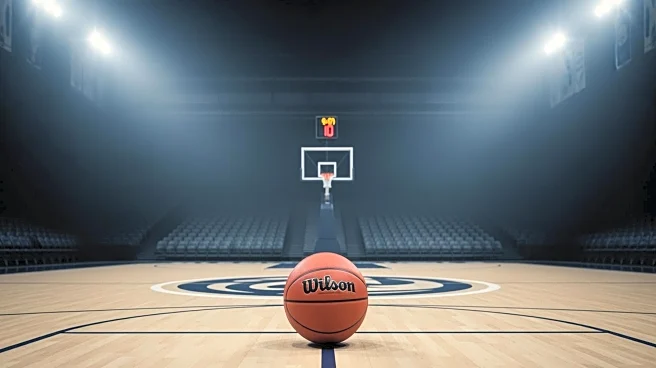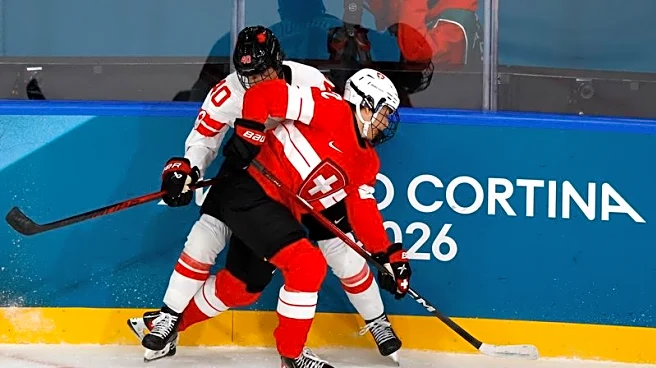What's Happening?
Michigan State basketball coach Tom Izzo has publicly criticized the NCAA's decision to allow London Johnson, a former G-League player, to play college basketball at Louisville. Izzo expressed concerns about the impact on high school seniors and the integrity
of college recruitment, arguing that the decision undermines traditional pathways for young athletes. He highlighted the challenges posed by the transfer portal and the lack of clear rules governing player eligibility. Izzo's comments reflect broader concerns among coaches about the NCAA's evolving stance on amateurism, which now permits players with professional experience to compete collegiately.
Why It's Important?
Izzo's criticism underscores the tension between traditional college recruitment practices and the NCAA's new eligibility rules. Allowing G-League players to join college teams could disrupt established recruitment processes, potentially disadvantaging high school athletes seeking college opportunities. This shift may lead to increased competition for roster spots and alter the dynamics of college basketball programs. Coaches and stakeholders are concerned about the long-term implications for player development and the integrity of collegiate sports. The NCAA's decision reflects broader changes in the sports industry, where financial incentives and professional experience challenge traditional definitions of amateurism.
What's Next?
The NCAA may face pressure to address concerns raised by coaches like Izzo and clarify eligibility rules. As more G-League players seek college opportunities, the organization might need to establish guidelines to balance professional experience with amateur status. Stakeholders could advocate for reforms to ensure fair recruitment practices and protect the interests of high school athletes. The ongoing debate may prompt discussions about the future of college sports and the role of professional pathways in shaping athletic careers.
Beyond the Headlines
Izzo's comments highlight ethical considerations surrounding the NCAA's eligibility changes. The integration of professional experience into college sports challenges traditional narratives of amateurism and raises questions about fairness and equity in recruitment. This shift may influence cultural perceptions of college athletics and prompt discussions about the balance between education and sports in shaping student-athlete experiences.

















